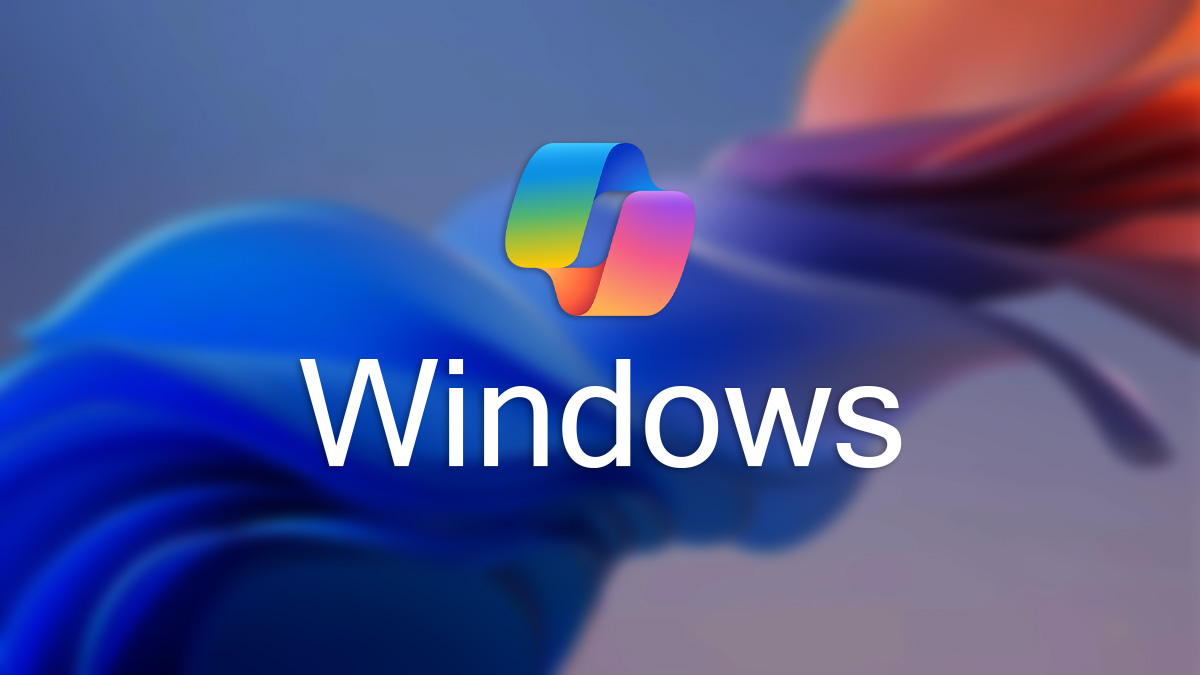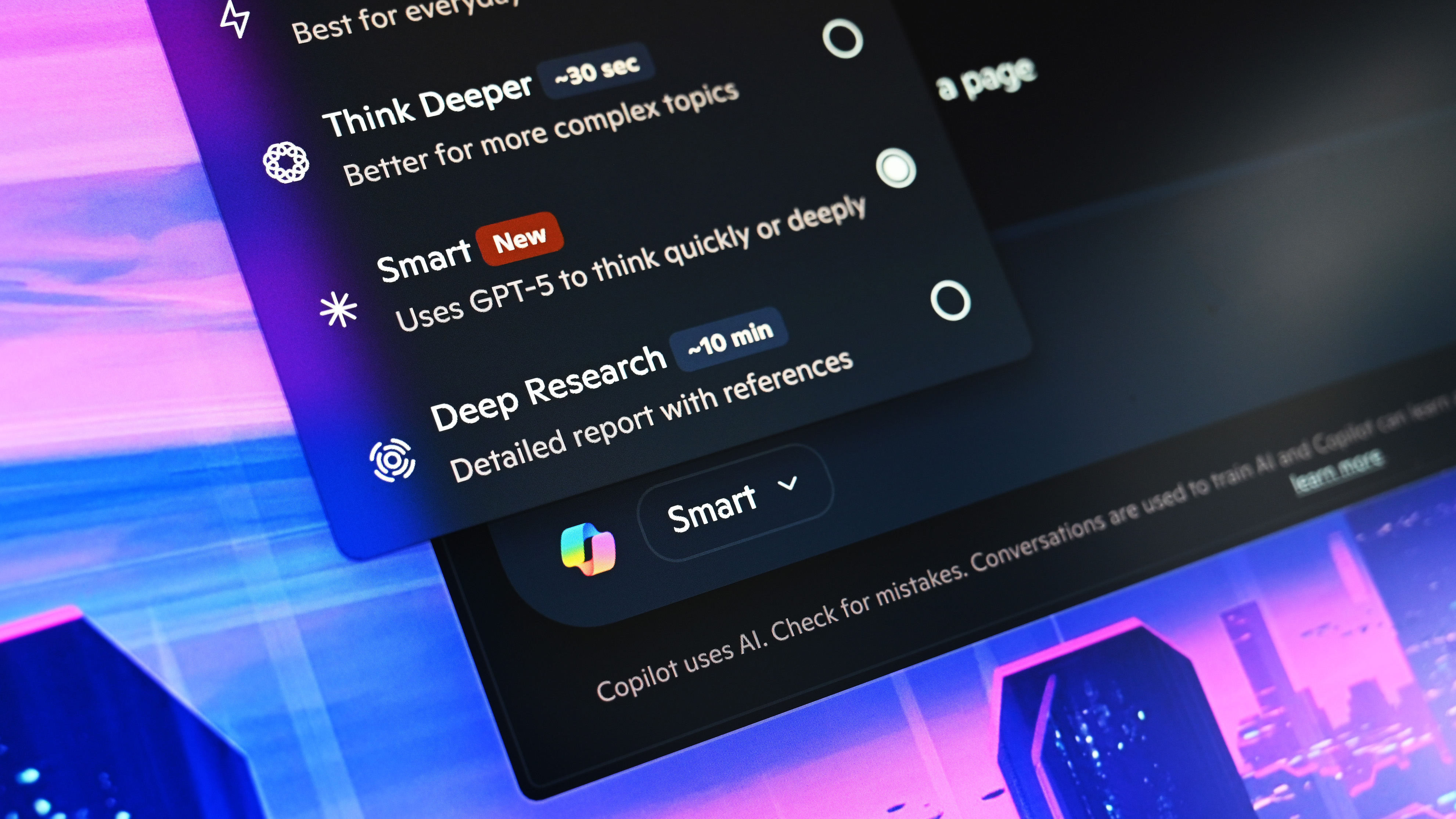Forget clicks — 'Windows 12' will understand your intent, says Microsoft
In a new video, Microsoft CVP and Windows boss Pavan Davuluri has teased that the future of Windows will consist of a truly ambient and multi-modal experience made possible by AI that will redefine our usage of computers.

All the latest news, reviews, and guides for Windows and Xbox diehards.
You are now subscribed
Your newsletter sign-up was successful
Microsoft has published a new video interview with the current head of Windows, Pavan Davuluri, where he discusses the future of the platform and reveals some very interesting aspects about what's next for the operating system.
In the interview, Davuluri is asked how AI is going to change the way we interact with computers. Here's what he had to say on the matter:
"I think we will see computing become more ambient, more pervasive, continue to span form factors, and certainly become more multi-modal in the arc of time ... I think experience diversity is the next space where we will continue to see voice becoming more important. Fundamentally, the concept that your computer can actually look at your screen and is context aware is going to become an important modality for us going forward."
Right out of the gate, there's a lot to unpack here. Davuluri confirms that in the wake of AI, Windows is going to change significantly. The OS is going to become more ambient and multi-modal, capable of understanding the content on your screen at all times to enable context-aware capabilities that previously weren't possible.
Davuluri continues, "you'll be able to speak to your computer while you're writing, inking, or interacting with another person. You should be able to have a computer semantically understand your intent to interact with it."
This isn't the first time Microsoft has hinted that the future of Windows will prioritize voice as an input method when using a computer. Just last week, Microsoft's CVP of Enterprise & Security teased the same thing in a "Windows 2030 Vision" video that also discussed the future of Windows.
It's clear that whatever is coming next for Windows, it's going to promote voice as a first class input method on the platform. In addition to mouse and keyboard, you will be able to ambiently talk to Windows using natural language while you work, and have the OS understand your intent based on what's currently on your screen.
All the latest news, reviews, and guides for Windows and Xbox diehards.
Davuluri also teases that Windows likely won't look like it does today thanks to agentic AI. "I think what human interfaces look like today and what they look like in five years from now is one big area of thrust for us that Windows continues to evolve. The operating system is increasingly agentic and multi-modal ... that is an area of tremendous investment and change for us."
Davuluri also highlights the cloud as an enabler for these future experiences. "Compute will become pervasive, as in Windows experiences are going to use a combination of capabilities that are local and that are in the cloud. I think it's our responsibility to make sure they're seamless to our customers."
Windows is becoming the AI assistant

Today, AI assistants exist primarily as apps on top of existing OS platforms. If you want to use Copilot on Windows, or Gemini on Android, or Siri on Mac, these assistants exist on top of the OS as overlays or floating app windows. We're yet to see what an operating system can be like when it's built from the ground up with AI woven through it.
It sounds like this is what Microsoft is preparing to introduce on Windows in the next five years, potentially with a Windows 12. Many top level Microsoft executives have now teased that whatever is next for the platform and computing as a whole, it's going to be a big shift in the wake of AI.
I think a lot of people are going to struggle getting their head around the idea of voice being a reliable, primary input method when using a PC, but with agentic AI and the ability for the OS to understand user intent and natural language, it's going to feel a lot more natural than you might think.
It's not just Microsoft, either. Apple is also rumored to be working on a new feature for iOS 26 that places voice at the center of the experience. iPhone users will be able to navigate apps just by telling the iPhone what their intent is.
On Windows, it's likely that voice will be used in addition to a mouse and keyboard. Instead of there being two primary methods of input, there will be three. Type, touch/mouse, and voice. You likely won't have to use voice to get your work done, but your workflow will be made easier if you do.
Of course, there will be a huge concern around privacy. It will take lots of personal user data to make these experiences truly useful, and with the company already claiming that a balance between local compute and cloud compute will be required to make these experiences a reality, I suspect there will be some push back.
What are your thoughts on Microsoft's vision for the future of Windows? Let us know in the comments.

You must confirm your public display name before commenting
Please logout and then login again, you will then be prompted to enter your display name.

